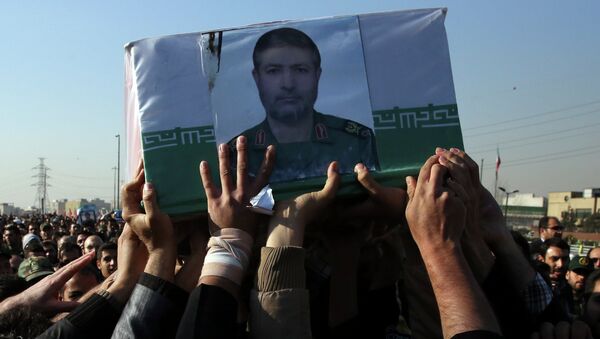Last week, an airstrike was launched against a convoy in the Syrian-controlled portion of the Golan Heights. Six Hezbollah fighters were killed, as well as Iranian general Mohammad Ali Allahdadi. While Israel has not officially admitted to the airstrikes, sources inside the Israeli military told the BBC that the strike was aimed at stopping an attack on its soil.
Whether Israel was responsible or not is less relevant than the fact that Iran, at least, believes them to be. Officials in Tehran told the Islamic Republic News Agency they had issued a warning through U.S. diplomats that they would be seeking retaliation.
“We told the Americans that the leaders of the Zionist regime should await the consequences of their act,” IRNA quoted Deputy Foreign Minister Hossein Amirabdollahian as saying. “In this message to the Americans we said that the Zionist regime had crossed our red lines.”
General Allahdadi was reportedly in Syria to advise forces supporting President Bashar al-Assad, and after his death, the Iranian media has portrayed him as a martyr.
“[General Allahdadi was] martyred while defending the shrines and innocent people of Syria,” an official statement read. “The commander was in Syria to provide advice to the nation to confront the Salafist-takfiri terrorists,” it said, referencing Sunni extremists.

During Allahadadi’s commemoration, acting commander of the Revolutionary Guard, General Hossein Salami, also reiterated Iran’s intentions.
“We tell [Israel to] await retaliation but we will decide about its timing, place and the strength,” Salami said.
While Israel has made no comment on the latest threat, U.S. State Department spokeswoman Jen Psaki told reporters, “We absolutely condemn any such threats, that come in any form.”
Also of ongoing concern is the threat of Hezbollah retaliation. On Wednesday, a missile launched by the Lebanese militant group struck a military convoy and killed two Israeli soldiers, injuring seven others. The attack is believed to be related to the airstrikes of January 18.
In the ten days since the airstrike, the Golan Heights region has witnessed an escalation of violence unseen since the 34-day war of 2006.
Iran has sent military advisers to assists Syrian and Iraqi forces, and General Allahdadi is one of the highest ranking Iranian officials to be killed abroad in decades. Whether this is enough for Iran to act on its threat, it certainly proved true of Hezbollah.
At the funeral for one of their dead, an anonymous member of the group said, “People are angry and want a quick retaliation.”




